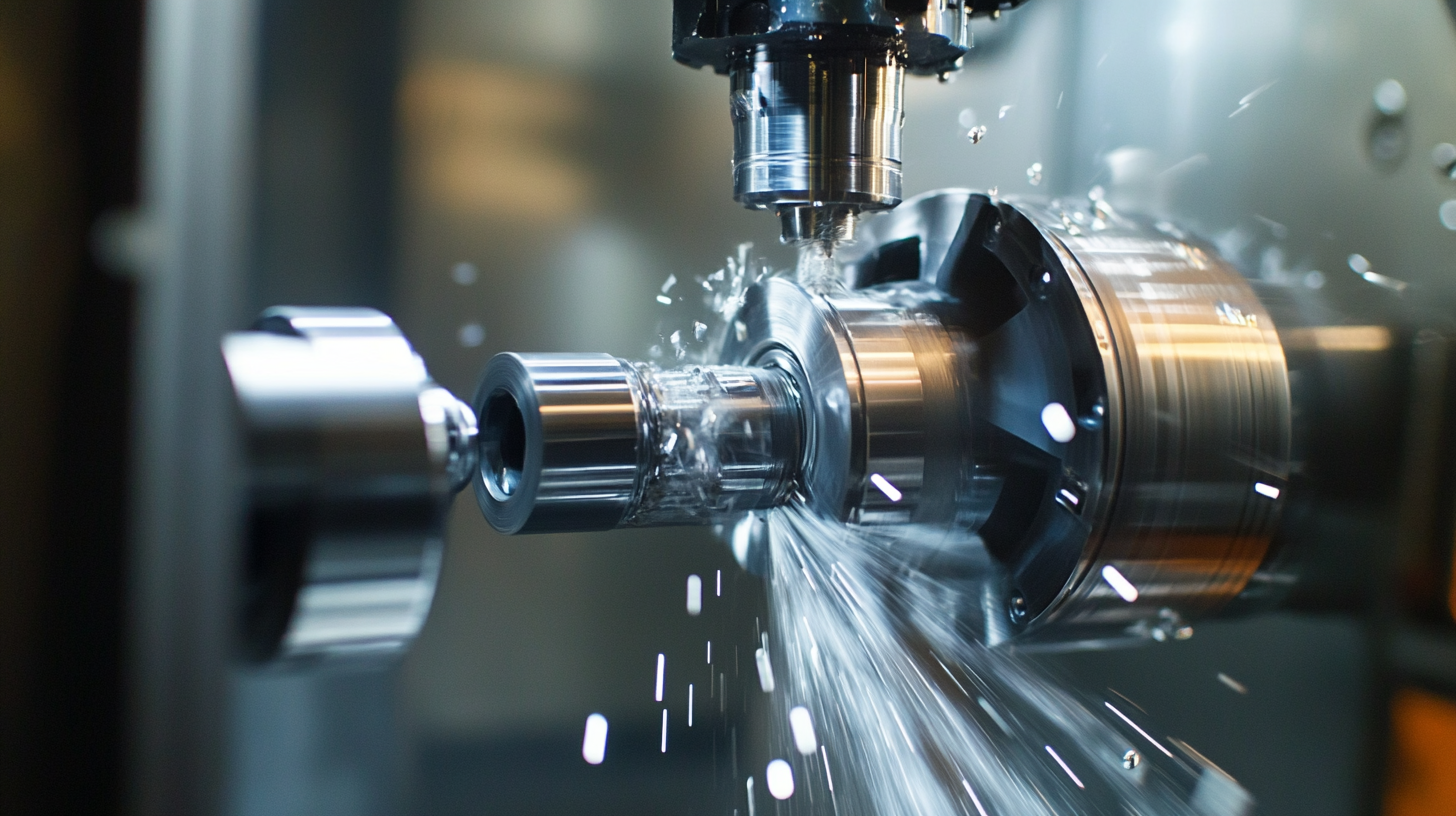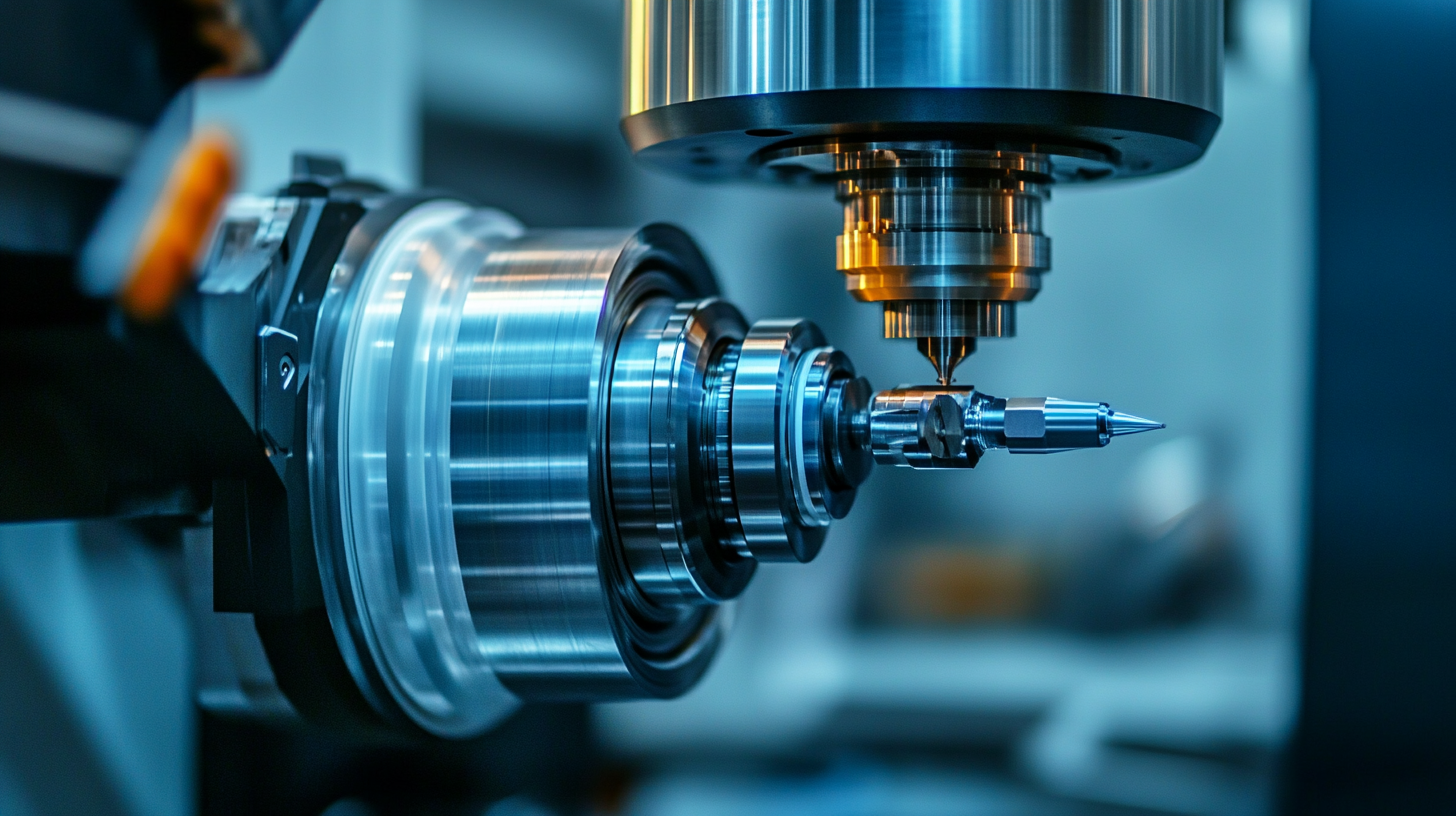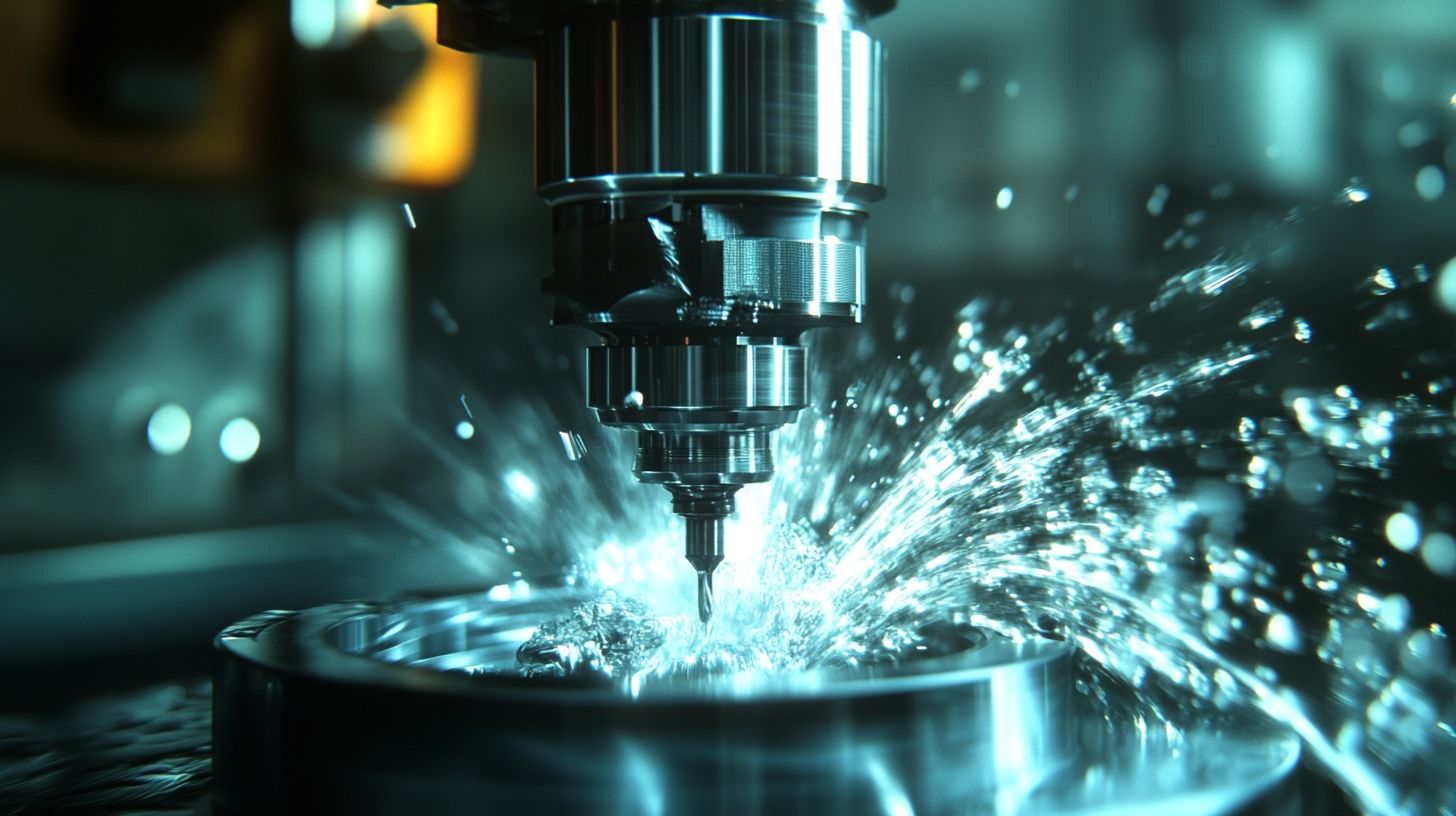
China's Best Precision Machining Revolutionizing Global Manufacturing Standards
In recent years, China's precision machining industry has emerged as a transformative force in the global manufacturing landscape, elevating standards and reshaping methodologies across various sectors. Precision machining, defined by its ability to produce intricate components with high accuracy and efficiency, is becoming increasingly vital in industries ranging from aerospace to automotive and medical devices. As companies around the world strive to enhance their competitive edge through superior manufacturing capabilities, understanding the characteristics and applications of different types of precision machined products becomes essential. This blog will explore the unique features, benefits, and suitable applications of various precision machining techniques, providing valuable insights into how they are revolutionizing the way products are designed and produced on a global scale. Through this examination, we aim to highlight the critical role that precision machining plays in driving innovation and efficiency in modern manufacturing.

China's Precision Machining: An Overview of Its Rapid Growth
China's precision machining industry has been experiencing remarkable growth, playing a pivotal role in shaping global manufacturing standards. By 2032, the market size for precision machining is projected to reach a staggering US$ 162.16 billion. This growth is driven by an increasing demand for automation and precision in manufacturing processes. The adoption of advanced technologies, particularly CNC machines, is enhancing efficiency and productivity across various sectors.
In addition, the global grinding machinery market is also on the rise, with an estimated size of USD 5.94 billion in 2024 and a forecasted CAGR of 4.4% from 2025 to 2030. This growth reflects a broader trend towards investing in cutting-edge machinery that satisfies the evolving requirements of modern manufacturing environments. By integrating innovations such as high precision electro permanent magnetic chucks, manufacturers can further improve operational precision and reduce downtime.
**Tips for Success in Precision Machining:**
- Invest in state-of-the-art CNC machines to enhance production efficiency and accuracy.
- Regularly update training for your workforce to keep pace with automation advancements.
- Focus on quality control processes to ensure that products meet the increasing standards of precision required in today’s market.
China's Best Precision Machining Revolutionizing Global Manufacturing Standards
| Dimension | Data (2023) |
|---|---|
| Market Size (Billion USD) | 35 |
| Annual Growth Rate (%) | 10 |
| Number of Precision Machining Companies | 5000 |
| Major Global Export Destinations | USA, Europe, Japan |
| Leading Technology Adoption (%) | 75 |
| Workforce in Precision Machining (Thousands) | 300 |
| Percentage of Technologically Advanced Machinery (%) | 60 |
Key Technologies Driving Precision Machining in China
 China has emerged as a global leader in precision machining, driving innovation and setting new standards in manufacturing. Key technologies play a pivotal role in this transformation, particularly CNC (Computer Numerical Control) machining, which allows for unparalleled accuracy and efficiency. Advanced software and automation are enabling manufacturers to produce complex components with minimal waste and high repeatability. The integration of Industry 4.0 practices further enhances real-time monitoring and data analysis, allowing manufacturers to optimize their production processes seamlessly.
China has emerged as a global leader in precision machining, driving innovation and setting new standards in manufacturing. Key technologies play a pivotal role in this transformation, particularly CNC (Computer Numerical Control) machining, which allows for unparalleled accuracy and efficiency. Advanced software and automation are enabling manufacturers to produce complex components with minimal waste and high repeatability. The integration of Industry 4.0 practices further enhances real-time monitoring and data analysis, allowing manufacturers to optimize their production processes seamlessly.
Another crucial technology is additive manufacturing, which complements traditional machining techniques. By enabling the production of intricate designs that would be impossible to achieve with conventional methods, this technology is revolutionizing development cycles in various industries, from aerospace to automotive.
Quality Control Standards in Chinese Precision Machining
Precision machining in China is undergoing a significant transformation, setting new benchmarks for quality control standards that resonate globally. This evolution is pivotal as manufacturers worldwide seek reliable supply chains coupled with exceptional product quality. The advancements in coordinate measuring machines (CMMs) highlight the emphasis on precise measurements and quality assurance, with the global market for CMMs projected to reach USD 3.20 billion by 2030, growing at a CAGR of 8.7%.
To ensure top-notch quality, manufacturers in the precision machining sector are adopting advanced technology and rigorous quality control protocols. Here are some tips for businesses looking to source precision machined components:
1. **Verify Certifications**: Always check if the manufacturers adhere to international quality standards, such as ISO certifications. This ensures they meet stringent production and quality control guidelines.
2. **Utilize Technology for Quality Assurance**: Explore suppliers that leverage modern technologies like CMMs for thorough inspections, guaranteeing that components meet your specifications and functional requirements.
3. **Establish Clear Communication**: Maintain open lines of communication with manufacturers to discuss quality expectations, timelines, and any potential challenges to ensure a smooth collaboration.
These strategies are essential in navigating the complexities of sourcing high-quality precision machined products from China, underscoring its pivotal role in the global manufacturing landscape.
Impact of Chinese Precision Machining on Global Supply Chains
 China's precision machining industry has emerged as a powerful force reshaping global supply chains. With
advanced technologies and skilled labor, Chinese manufacturers are setting new benchmarks in precision
and efficiency. The integration of automation and artificial intelligence has enabled them to produce
high-quality components at competitive prices, streamlining processes for companies around the world. This not only
reduces lead times but also enhances the reliability of operations, allowing businesses to respond swiftly to market
fluctuations.
China's precision machining industry has emerged as a powerful force reshaping global supply chains. With
advanced technologies and skilled labor, Chinese manufacturers are setting new benchmarks in precision
and efficiency. The integration of automation and artificial intelligence has enabled them to produce
high-quality components at competitive prices, streamlining processes for companies around the world. This not only
reduces lead times but also enhances the reliability of operations, allowing businesses to respond swiftly to market
fluctuations.
As Chinese precision machining continues to develop, its impact on global supply chains becomes increasingly evident.
Manufacturers in various sectors, from automotive to aerospace, are increasingly reliant
on Chinese components, which in turn strengthens economic ties and fosters collaboration among countries. The ability to
source precise parts quickly and cost-effectively gives companies a significant competitive edge. Additionally, the focus
on sustainability and eco-friendly practices within China's manufacturing sector is setting a positive trend that may influence
global production standards, promoting more responsible supply chain management practices worldwide.
Future Trends in Precision Machining and their Global Implications
The landscape of precision machining is undergoing a significant transformation, particularly in China, which is rapidly positioning itself at the forefront of global manufacturing standards. According to a recent report by Market Research Future, the precision machining market is expected to grow from USD 90 billion in 2023 to USD 135 billion by 2030, driven by advancements in automation and the integration of Industry 4.0 technologies. Chinese manufacturers are leveraging these innovations, enhancing their capabilities in precision machining and meeting the stringent demands of various sectors, including aerospace, automotive, and electronics.
One of the key trends shaping the future of precision machining is the increasing use of artificial intelligence (AI) and machine learning. A study by McKinsey & Company indicates that AI could boost productivity in manufacturing by up to 20%, allowing for more precise operations and reduced downtime. As Chinese firms adopt these technologies, they are not only improving efficiency but also setting new benchmarks for quality that influence global production standards. The shift towards ultra-precision machining is also evident, with techniques such as additive manufacturing and multi-axis machining leading the way. This evolution is crucial as industries worldwide strive to enhance product performance while minimizing waste and costs.
